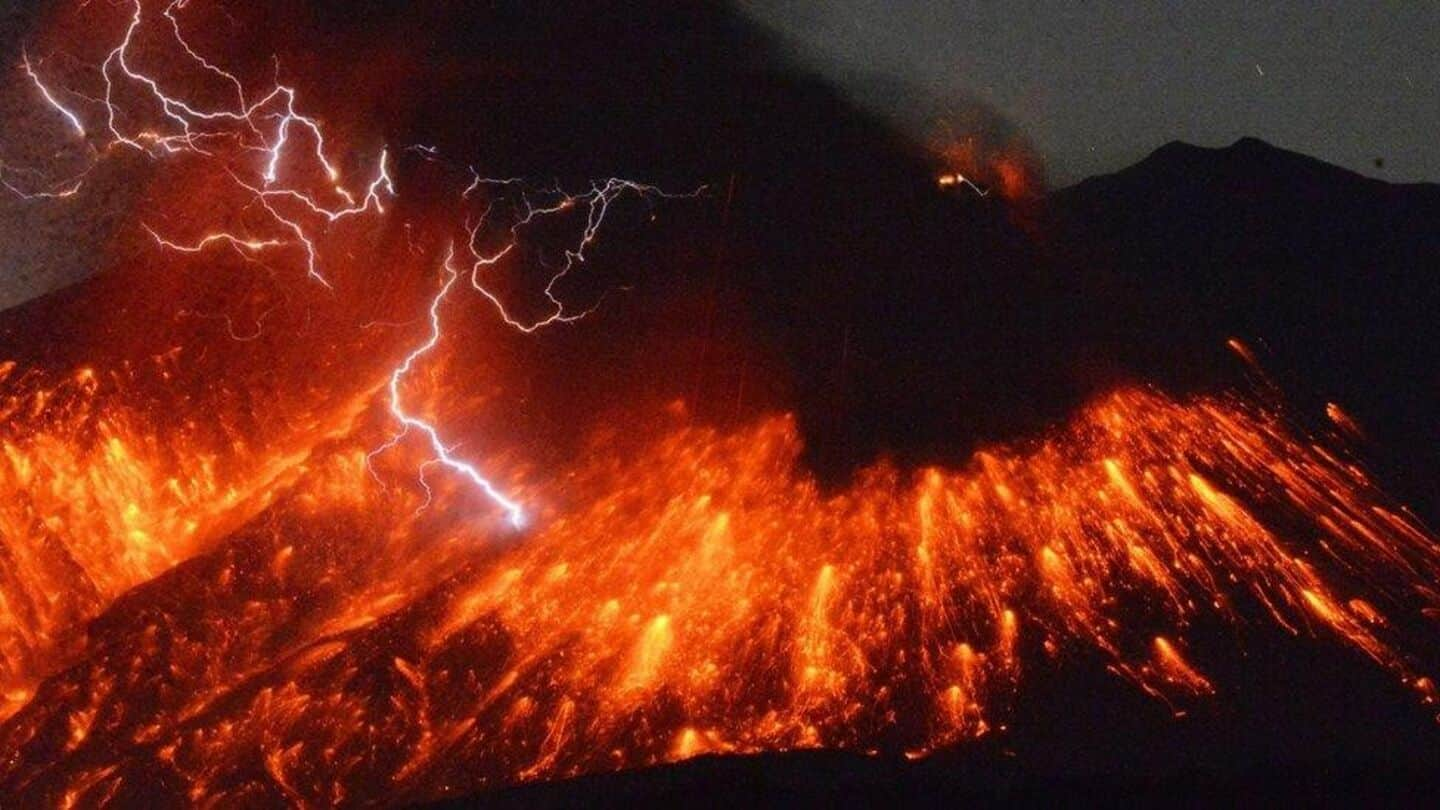
Are we prepared for next volcanic disaster? Scientist sounds alarm
What's the story
The recent eruption of a dormant Ethiopian volcano after nearly 12,000 years has raised alarms about the world's preparedness for similar natural disasters. In a paper published by The Conversation, scientist Mike Cassidy warned that "hidden" volcanoes like Hayli Gubbi in northern Ethiopia could be more dangerous than known active ones. Cassidy highlighted that these silent volcanoes erupt more frequently than most people realize and could trigger global disasters if not monitored properly.
Eruption impact
Hayli Gubbi volcano's eruption and its implications
The Hayli Gubbi volcano erupted on November 23, after a dormant period of 11,700 years. The eruption sent an ash cloud as high as 45,000 feet into the atmosphere. The cloud drifted northeastward toward northern India. This event is a stark reminder of how quickly and unexpectedly these hidden volcanoes can erupt, posing potential threats to regions far beyond their immediate vicinity.
Past eruption
El Chichon: A historical example of a dormant volcano's eruption
Cassidy also cited the 1982 eruption of Mexico's El Chichon volcano as an example of a dormant volcano that erupted after centuries. The explosion released hot rock, gas, and ash into rivers, destroying buildings and killing over 2,000 people. It also caused significant climate changes by creating reflective particles in the upper atmosphere which cooled the Northern Hemisphere and shifted the African monsoon southward, causing extreme drought conditions.
Monitoring concerns
Monitoring gaps and the need for a global system
Cassidy criticized the fact that fewer than half of active volcanoes are monitored, with scientific research still focusing on a select few. He stressed that "there are more published studies on one volcano (Mount Etna) than on all the 160 volcanoes of Indonesia, Philippines, and Vanuatu combined." This selective focus on recent Icelandic eruptions creates a "dangerous pattern," Cassidy warns.
Eruption risks
Potential consequences of sudden volcanic eruptions
Cassidy warned that sudden large volcanic eruptions can lead to famines, disease outbreaks, and major social upheaval. However, he noted that "scientists still lack a global system to anticipate or manage these future risks." He further cautioned that three-quarters of large eruptions come from volcanoes that have been quiet for at least 100 years. Cassidy emphasized the need for proactive action and preparedness instead of waiting until after an eruption occurs.